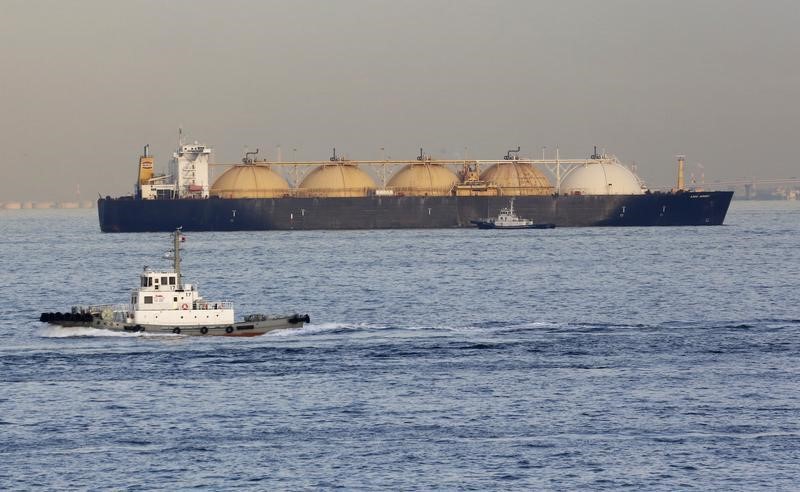TOKYO, July 14 (Reuters) - Japan's anti-monopoly regulator is investigating whether clauses in liquefied natural gas (LNG) contracts preventing buyers from selling the fuel to third parties hurts competition, Bloomberg News reported on Thursday, citing unidentified sources.
The investigation by the Japan Fair Trade Commission (JFTC) is in the early stages and may be completed by the end of year, the report said. A spokesman for the JFTC would not comment on the issue when contacted by Reuters, including whether any probe is under way.
Japan, the world's top LNG buyer, and other buyers have long complained that so-called destination clauses on oil price-linked contracts place unfair restrictions on trade of the fuel when it would make more economic sense to sell into other markets.
"We are very keen to sort it out," Kazushige Tanaka, director of the international affairs division in the Japanese trade ministry's Agency for Natural Resources and Energy, said on Thursday. He said he could not say if the JFTC was investigating the issue because it was a separate, independent department.
"Destination clauses are not good for expanding the market for LNG so we want to persuade or convince the private sector, consumers and producers to abolish them," Tanaka said.
Producers have rebuffed objections to the clauses, but that is changing as U.S. LNG supplies, which are linked to gas prices, became available. The European Commission has taken issue with destination clauses because they say it hurts competition.
Yuki Sadamitsu, director of the petroleum and natural gas division in the natural resources agency, said that the government was exchanging information with the JFTC on destination clauses, minutes of a government committee meeting held in May showed.
Japan's trade ministry issued a report in May recommending Japan should abolish or relax destination clauses in the future so that the utilities can take advantage of reselling and arbitrage trading opportunities in pursuit of more reasonable prices.
Japan, Europe, South Korea, China and India, which together account for about 80 percent of the world's total LNG imports, have jointly called for relaxing or abolishing the destination clause, the trade ministry said.
